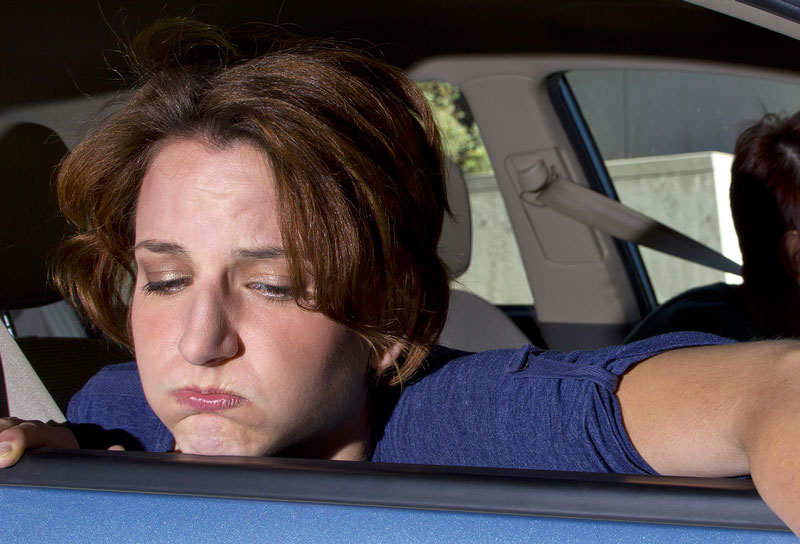
Robohub.org
Will motion sickness really be a barrier to self-driving cars?
 Earlier this week I was sent some advance research from the U of Michigan about car sickness rates for car passengers. I found the research of interest, but wish it had covered some questions I think are more important, such as how carsickness is changed by potentially new types of car seating, such as face to face or along the side.
Earlier this week I was sent some advance research from the U of Michigan about car sickness rates for car passengers. I found the research of interest, but wish it had covered some questions I think are more important, such as how carsickness is changed by potentially new types of car seating, such as face to face or along the side.
To my surprise, there was a huge rush of press coverage of the study, which concluded that 6 to 12% of car passengers get a bit queasy, especially when looking down in order to read or work. While it was worthwhile to work up those numbers, the overall revelation was in the “Duh” category for me, I guess because it happens to me on some roads and I presumed it was fairly common.
Oddly, most of the press was of the “this is going to be a barrier to self-driving cars” sort, while my reaction was, “wow, that happens to fewer people than I thought!”
Having always known this, I am interested in the statistics, but to me the much more interesting question is, “what can be done about it?”
For those who don’t like to face backwards, the fact that so many are not bothered is a good sign — just switch seats.
Some activities are clearly better than others. While staring down at your phone or computer in your lap is bad during turns and bumps, it may be that staring up at a screen watching a video, with your peripheral vision very connected to the environment, is a choice that reduces the stress.
I also am interested in studying if there can be clues to help people reduce sickness. For example, the car will know of upcoming turns, and probably even upcoming bumps. It could issue tones to give you subtle clues as to what’s coming, and when it might be time to pause and look up. It might even be the case that audio clues could substitute for visual clues in our plastic brains.
Another interesting thing to test would be having your tablet or phone deliberately tilt its display to give you the illusion you are looking at the fixed world when you look at it, or to have a little “window” that shows you a real world level so your eyes and inner ears can find something to agree on.
More advanced would be a passenger pod on hydraulic struts able to tilt with several degrees of freedom to counter the turns and bumps, and make them always be such that the forces go up and down, never side to side. With proper banking and tilting, you could go through a roundabout (often quite disconcerting when staring down) but only feel yourself get lighter and heavier.
This post originally appeared on Robocars.com. If you liked this article, you may also be interested in:
- Issues in regulating robocars, and the case for a light hand
- Future driving: Business models for robocars
- Robocars: A natural fit for retirement communities
See all the latest robotics news on Robohub, or sign up for our weekly newsletter.
tags: Automotive, Autonomous Cars, cx-Research-Innovation, robocars, robohub focus on autonomous driving




